Posts Tagged ‘Kachin’ (94 found)
Burma Army Continues to Use the Drugs Trade as a Weapon of War
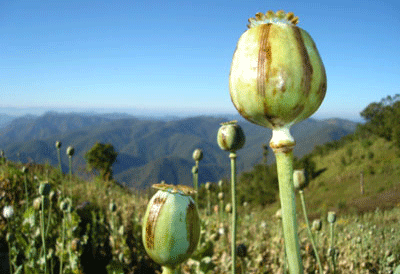 A new report by Kachin Women’s Association – Thailand (KWAT), “Silent Offensive: How Burma Army Strategies are Fuelling the Kachin Drug Crisis” outlines the severity of the drug problem in northern Burma as well as the complicity of the government in the trade. The report shows how the government is using opium-growing militia forces in its operations against the Kachin Independence Army (KIA) as part of a deal in which these militias are given free rein to produce and sell heroin and other narcotics.
A new report by Kachin Women’s Association – Thailand (KWAT), “Silent Offensive: How Burma Army Strategies are Fuelling the Kachin Drug Crisis” outlines the severity of the drug problem in northern Burma as well as the complicity of the government in the trade. The report shows how the government is using opium-growing militia forces in its operations against the Kachin Independence Army (KIA) as part of a deal in which these militias are given free rein to produce and sell heroin and other narcotics.
Thus, as the report points out, it is members of either Burma Army controlled Border Guard Forces (BGF) such as the New Democratic Army – Kachin (NDAK), a splinter group of the Kachin Independence Organization (KIO) that became a BGF in 2009, or People’s Militia Forces (PMF) that are heavily involved in offensives against the KIO. Land that is taken by the Burma Army and its proxy forces is then allocated to BGFs/PMFs to utilize however they like. This is often opium cultivation, heroin production and methamphetamine production. To make matters worse these are areas under which the KIO had previously been involved in anti-drug activities but since BGFs or PMFs have taken over, opium cultivation has increased greatly in areas such as Nampaka in northern Shan State and Chipwi in Kachin State […]
• • •Silent Offensive: How Burma Army Strategies are Fuelling the Kachin Drug Crisis
This report, based on interviews with Kachin drug users, their family members, drug sellers, and community leaders in eight townships of northern Burma, paints a disturbing picture of the drug crisis in Kachin areas. It shows how the renewed conflict against the Kachin Independence Army (KIA) since June 2011 is fuelling drug production and worsening existing drug abuse among Kachin communities. […]
• • •New report by Kachin Women’s Association Thailand: Burmese Military Strategies Fuelling Kachin Drug Crisis
A new report exposes how anti-insurgency strategies of the Burma Army are fuelling the drug crisis in Kachin areas, particularly since the renewal of conflict against the Kachin Independence Army (KIA) in 2011 […]
• • •The Myanmar National Human Rights Commission Continues Failing to Deliver
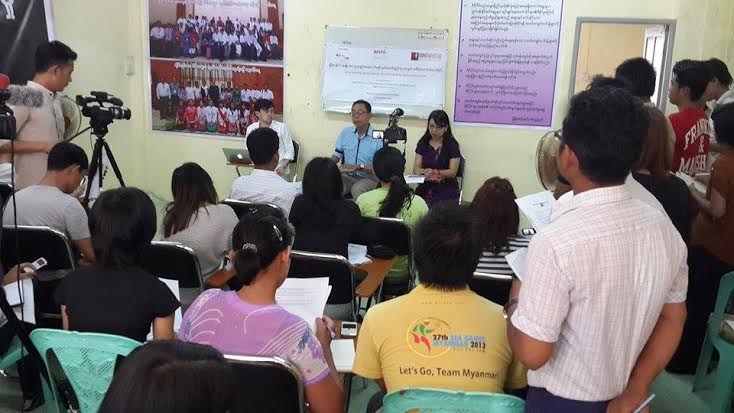 A report authored by Burma Partnership and Equality Myanmar was launched on 25 September 2014 in Rangoon revealing the continuing ineffectiveness of the Myanmar National Human Rights Commission (MNHRC) as well as the lack of independence from the government. The report was launched on the same day that a reshuffle of the members of MNHRC was announced by the government, which came as a complete surprise to civil society organizations due to the lack of consultation.
A report authored by Burma Partnership and Equality Myanmar was launched on 25 September 2014 in Rangoon revealing the continuing ineffectiveness of the Myanmar National Human Rights Commission (MNHRC) as well as the lack of independence from the government. The report was launched on the same day that a reshuffle of the members of MNHRC was announced by the government, which came as a complete surprise to civil society organizations due to the lack of consultation.
Released at the Myanmar Journalists Network in Rangoon, Burma: All the President’s Men, contributed to the annual Asian NGO Network on National Human Rights Institutions (ANNI) Report on the Performance and Establishment of National Human Rights Institutions in Asia (2014). The report analyzes the Myanmar National Human Rights Commission Law 2014 enacted in March this year (enabling law) that institutionalizes the mandate of the MNHRC. The report finds that the law does not guarantee independence from the government and in particular, the president’s office. In contravention of international standards on national human rights institutions, namely the Paris Principles, the selection process does not adequately consult with civil society. As the report points out, “It is up to the selection board to come up with procedures for short-listing candidates, yet the enabling law itself should set out the process/procedure for selection, with consultations with civil society.” The members of the MNHRC are actually chosen by a selection board of ten, five of which are from the government or are government-affiliated. The enabling law states that two members of this board are to come from civil society organizations and a further two are to be MP, yet there is no transparency regarding the procedures under which the two MPs are chosen. Additionally, the chosen civil society members to the selection board are restricted to registered civil society only, thus excluding many outspoken and critical political and human rights groups who feel they cannot register under the current climate […]
• • •Namkham Farmers’ Protest Highlights Urgent Need for Moratorium on Resource Extraction during Peace Process
The anti-mining protest by over 3,000 villagers in Namkham, northern Shan State, on September 5, 2014, highlights the lack of protection against damaging mining, and the urgent need for a moratorium on resource extraction in ethnic areas until there is genuine political reform and peace in Burma […]
• • •Myanmar/Burma: Sustained EU Engagement at UN Critical to Support Human Rights Reforms
Amnesty International, FIDH (the International Federation for Human Rights), and its member organization, the Alternative ASEAN Network on Burma (ALTSEAN-Burma) today call on the European Union (EU) and its member states to ensure continued international engagement on the human rights situation in Burma by again introducing a resolution on the country at the upcoming United Nations General Assembly (UNGA) in October 2014. A failure to retain a robust UNGA resolution on Burma would endanger progress on human rights, which has increasingly come under threat this year […]
• • •Rights Groups Call for an End to Enforced Disappearances in ASEAN
Today, on the occasion of International Day of the Victims of Enforced Disappearances, we, the undersigned organizations, urge ASEAN member states to end acts of enforced disappearances in Southeast Asia.
Cases of enforced disappearances continue to occur in the region. Victims include human rights defenders as well as ordinary citizens. Enforced disappearances also continue to target vulnerable groups, such as children. Three new cases of enforced disappearance that took place over the past year clearly illustrate this worrying pattern […]
Global Humanitarian Overview – Status Report
2014 has seen a major surge in humanitarian crises around the world. Inter-agency strategic response and regional response plans now target over 76 million people in thirty-one countries compared to 52 million in December 2013. 102 million people are estimated to be in need of humanitarian assistance compared to 81 million in December 2013. Global financial requirements to cover humanitarian needs rose from US$12.9 billion in 2013 to $17.3 billion now. More and more crises are having a regional impact with a spill-over effect on countries which are already fragile.
Five crises have been classified by Principals of the Inter-Agency Standing Committee as “L3 emergencies”. L3s are considered to be the highest level of crisis requiring sustained, top level, system-wide support focused on leadership and coordination to improve the effectiveness of humanitarian response efforts. The response to Typhoon Haiyan in the Philippines was declared an L3 emergency in November. An estimated 11.3 million people in nine regions of the Philippines were affected by Typhoon Haiyan. At least 6,201 people were killed and the force of the storm caused widespread destruction of homes and infrastructure in many towns […]
• • •January – June 2014: Report on the Human Rights Situation on Burma
The Network for Human Right Documentation-Burma (ND-Burma) is an organization that documents and reports human rights violations taking place throughout Burma. We are a watch-dog for human rights violations and are continually monitoring the human rights situation in Burma.
This report covers the first period of 2014 and focuses on 103 documented cases of human rights violations in Burma from January-June 2014. There are many serious human rights violations addressed and highlighted in this report, including: torture, extra-judicial killing, illegal arrests and detention, arbitrary taxation, property crimes, forced labor, human trafficking, forced displacement and rape.
Even though President U Thein Sein promised to release all political prisoners by the end of 2013, there are still many political prisoners in Burma, including new detainees in 2014. Many human right defenders and activists have been arrested under the Unlawful Association Act of 1908, Section 5 (e) and 5 (j) of the Emergency Provisions Act, and Section (18) of the Right to Peaceful Assembly and Peaceful Procession Act. For example, U Win Cho and U Nay Myo Zin were arrested under Section (18) for protesting the confiscation of land in Kyauk Ta Dar Township, Yangon. Moreover, innocent Kachin IDPs were arrested under Section (17) of the Unlawful Association Act for suspected contact with ethnic armed groups. These actions reinforce the fact that the government in Burma is still willing to use oppressive and unjust laws against the Burmese people […]
• • •Multi-Faith Network Urges Secretary Kerry to Raise Religious Freedom Violations with Burmese Government
Members of the US-based International Religious Freedom (IRF) Roundtable, a multi-faith informal group of organizations and individuals advocating for freedom of religion or belief, have written to US Secretary of State John Kerry ahead of his visit to Burma, urging him make it a priority to discuss reported violations of freedom of religion or belief with the government […]
• • •
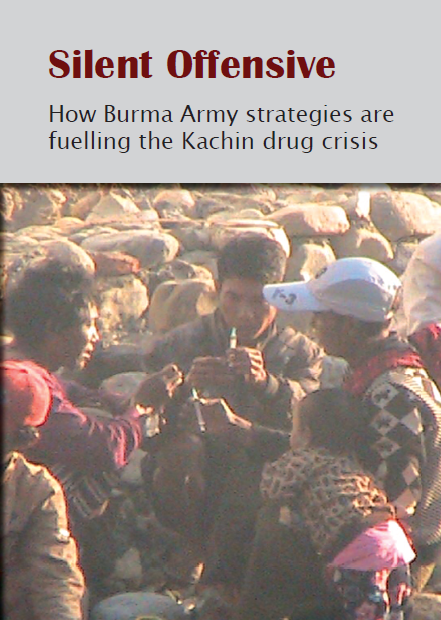
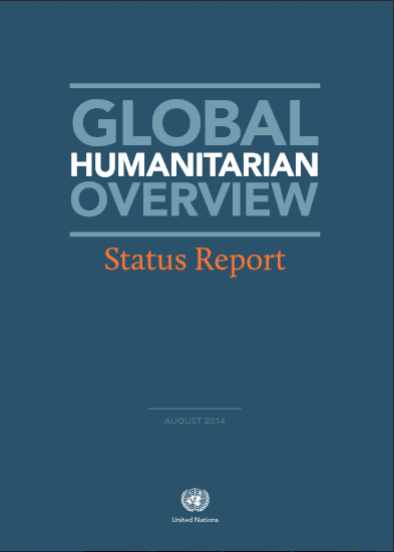
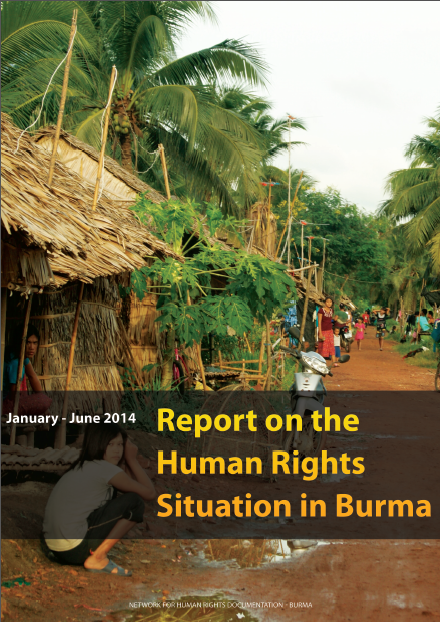








 All posts
All posts